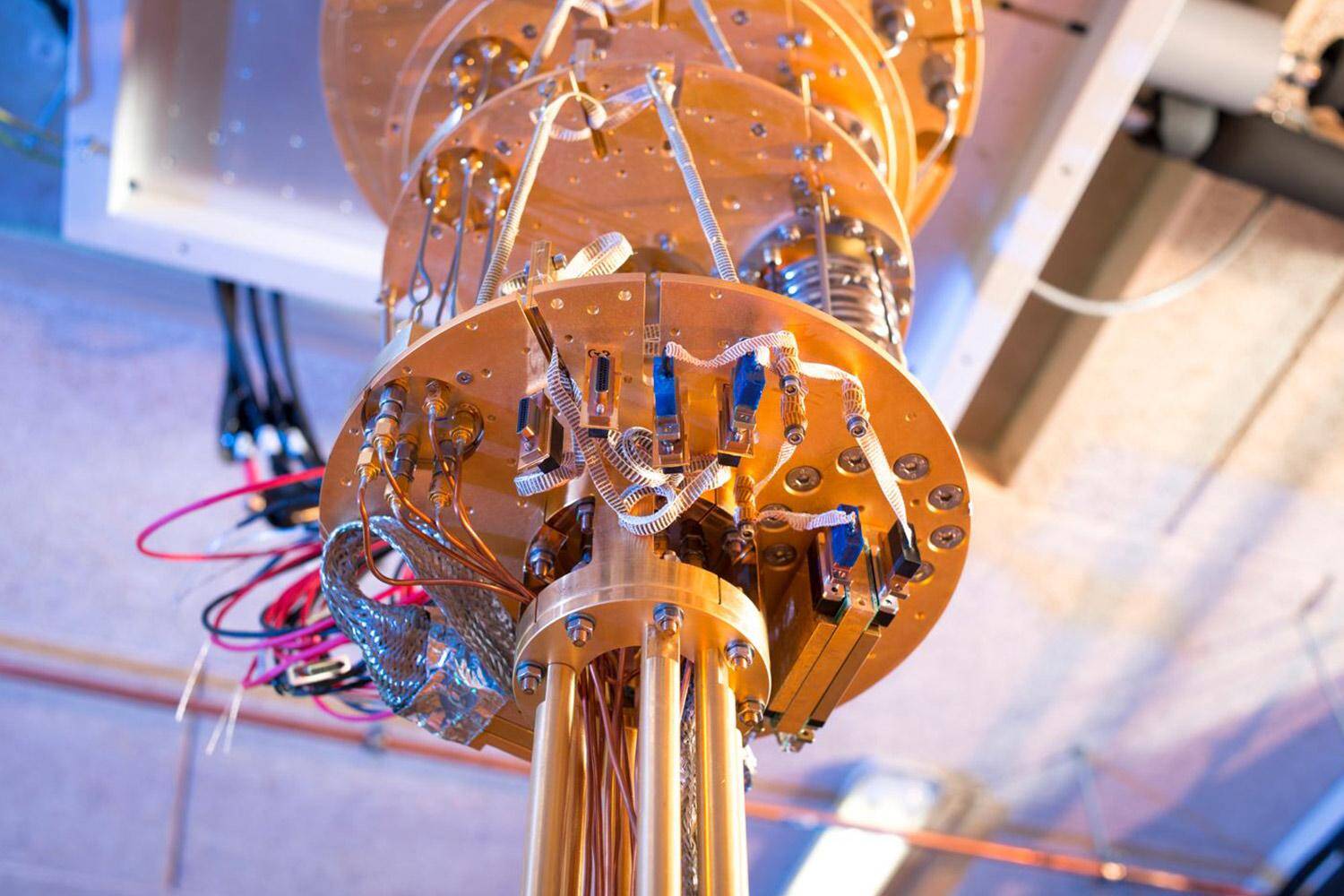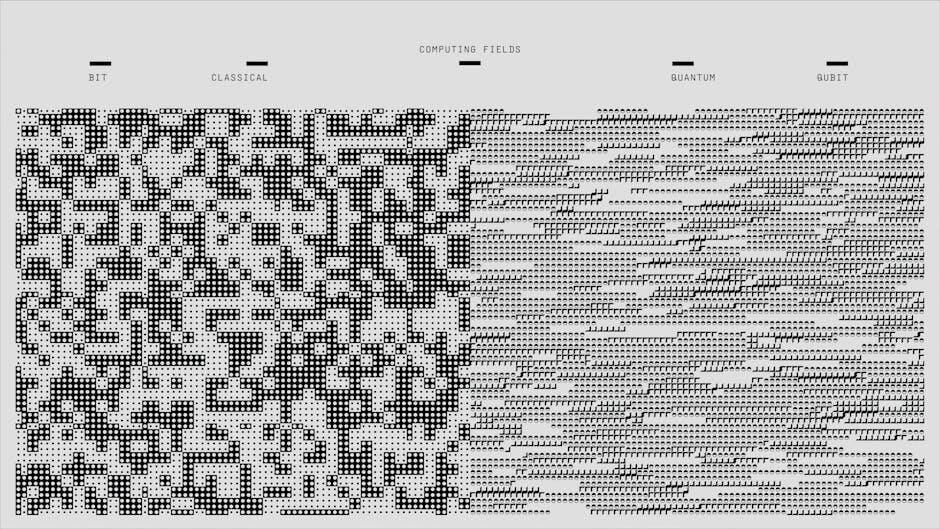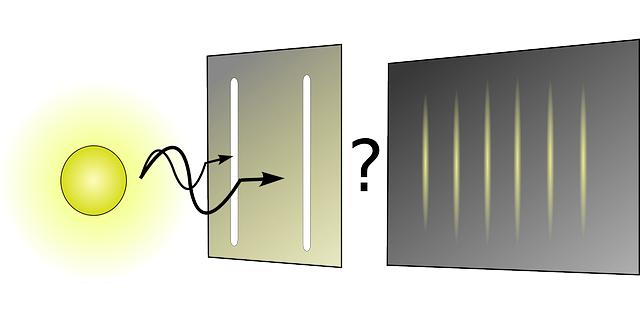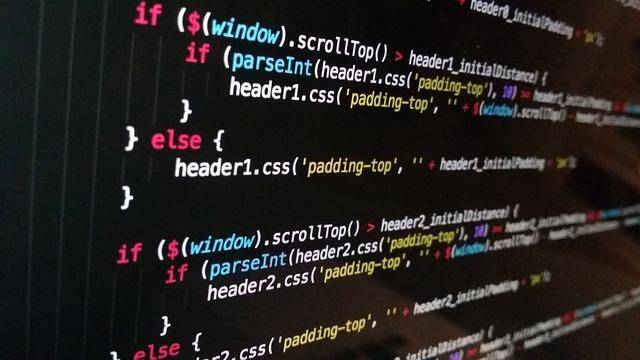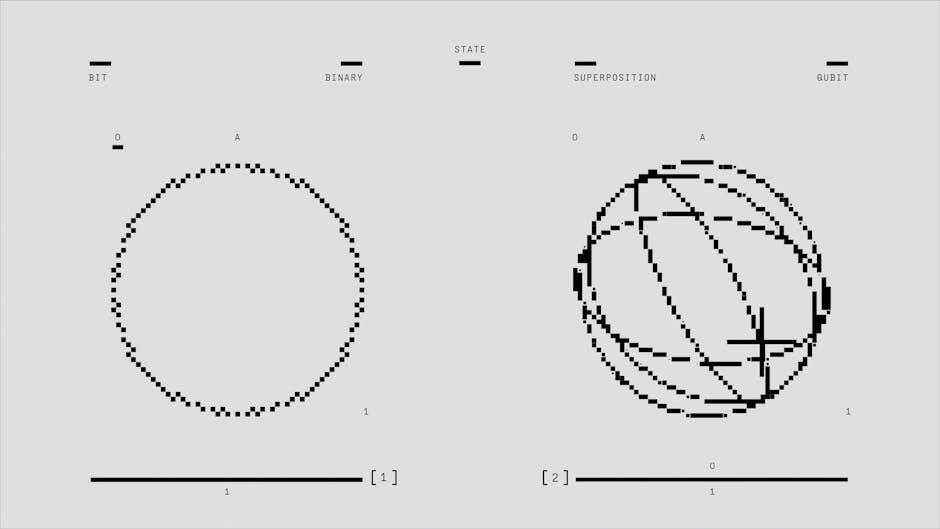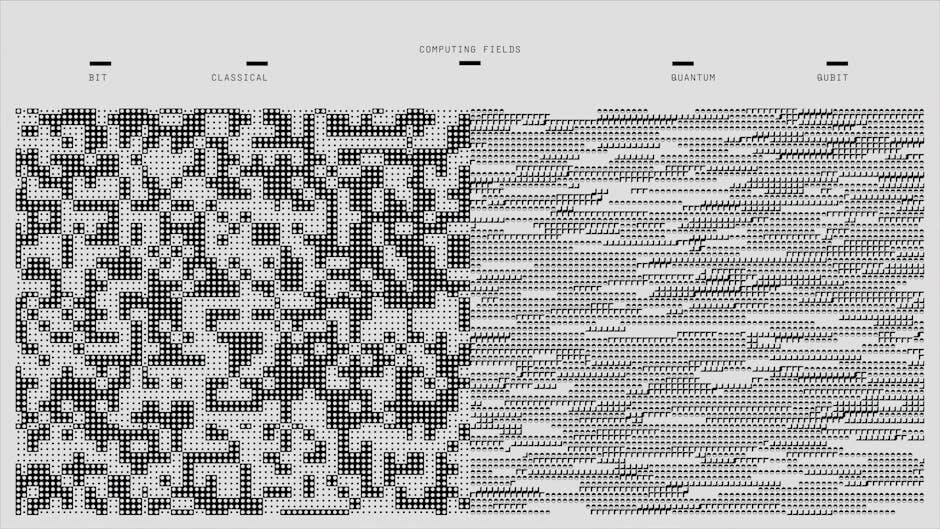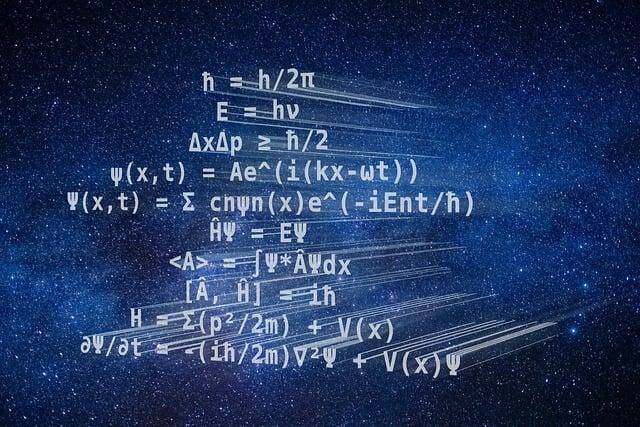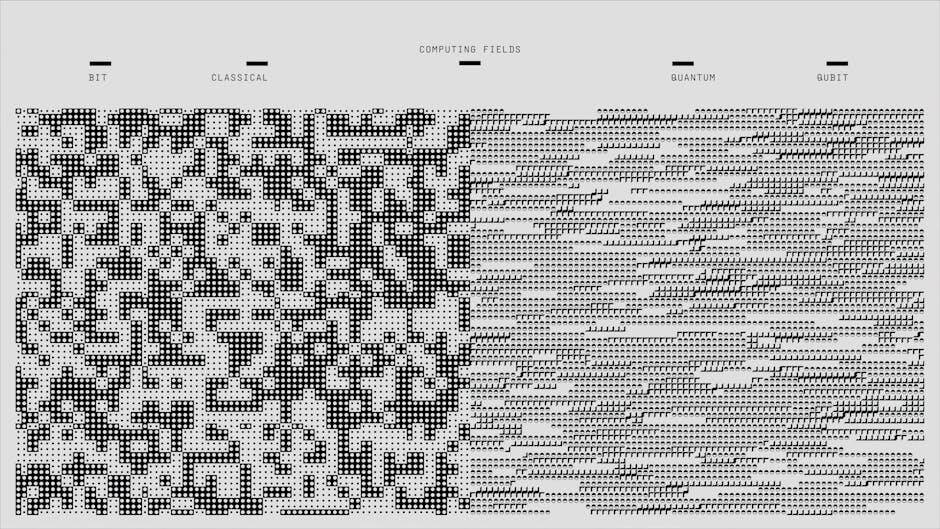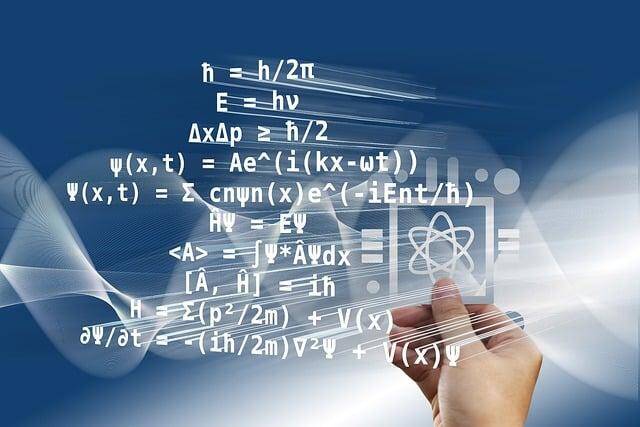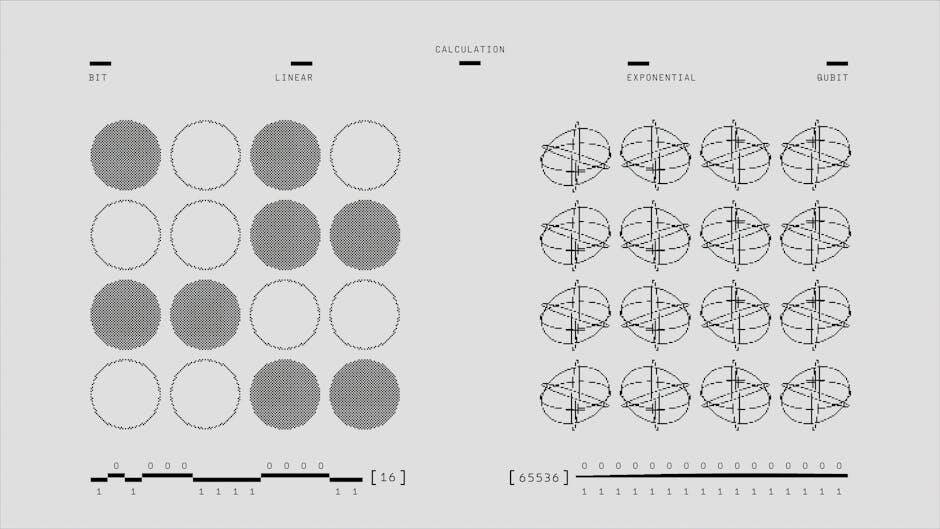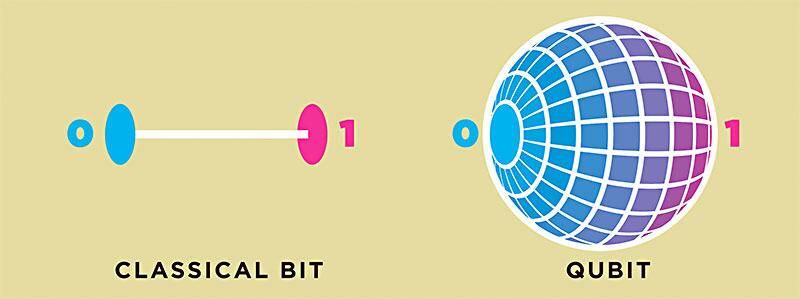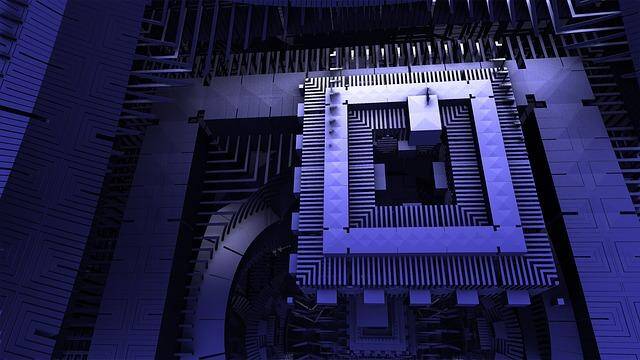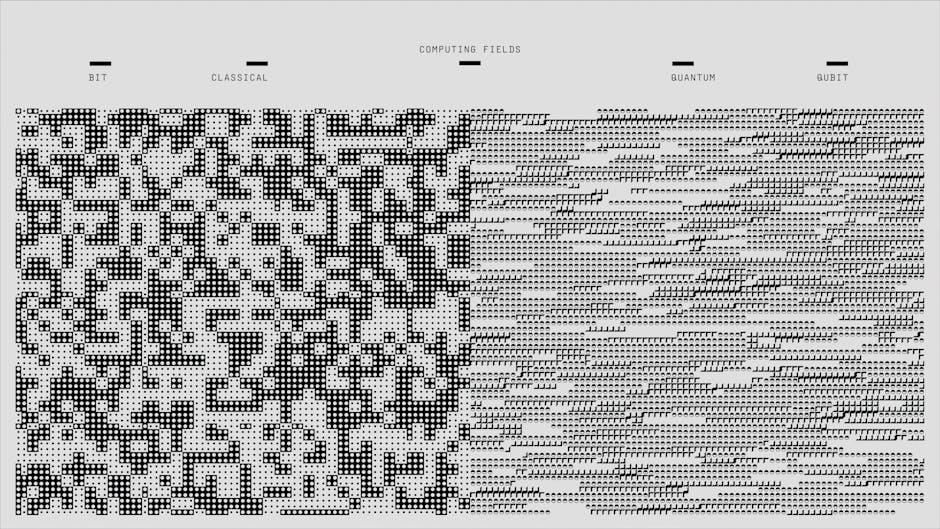Unlocking the Future: Home Quantum computing Explained In the ever-evolving landscape of technology,few innovations have sparked as much intrigue and speculation as quantum computing. Once confined to the labs of theoretical physicists and the realm of science fiction, this groundbreaking technology is now on the verge of reshaping our homes and lives. Imagine a world where tasks that once took years to compute can now be accomplished in mere seconds—solving complex problems, optimizing logistics, or even cracking sophisticated encryption. As we stand on the cusp of this new frontier, understanding the principles of quantum computing becomes not just a curiosity, but a necessity for navigating the future. In this article, we will demystify the concepts behind quantum computers, explore their potential applications, and discuss what it means to bring this powerful technology into our everyday lives. Join us as we unlock the future of home quantum computing and uncover the possibilities that lie ahead.
Table of Contents
- Understanding Quantum Mechanics: The Foundation of Home Quantum computing
- The Benefits of Quantum Power: Revolutionizing Everyday Tasks
- Building Your Quantum Future: Essential Hardware and Software Choices
- Navigating the Quantum Landscape: Best Practices for Enthusiasts and Beginners
- Q&A
- The Conclusion
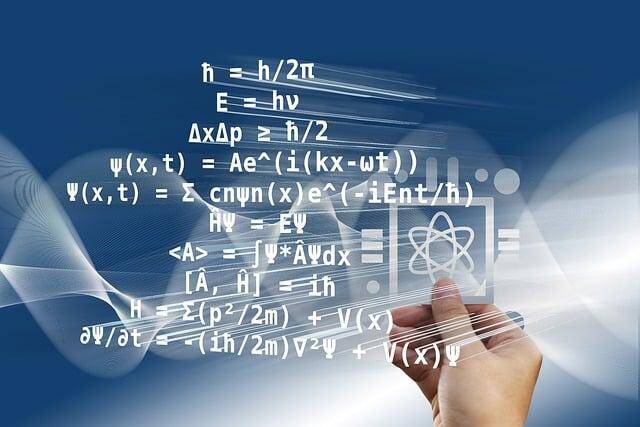
Understanding Quantum Mechanics: The Foundation of Home Quantum Computing
Quantum mechanics is the branch of physics that delves into the behavior of the vrey small, primarily at the scale of atoms and subatomic particles. It challenges our classical intuitions, introducing phenomena that can seem perplexing yet are profound in their implications for technology, particularly in the realm of computing. in the simplest terms, quantum mechanics equips us with the understanding to manipulate quantum bits, or qubits, wich differ fundamentally from classical bits. While classical bits can represent a state of either 0 or 1, qubits can exist in multiple states concurrently due to a property known as superposition. This capability allows quantum computers to perform complex calculations at speeds unattainable by conventional systems.
Furthermore, quantum entanglement adds a layer of complexity and power to quantum computing. When qubits become entangled, the state of one qubit is directly related to the state of another, no matter the distance separating them. This unique relationship enhances parallelism in computations, turning tasks that woudl take classical computers centuries into operations that quantum systems could execute in mere seconds. To encapsulate these basic principles, consider the following aspects:
- Superposition: Enables simultaneous depiction of multiple states.
- Entanglement: Creates interdependent qubit relationships enhancing computational power.
- Quantum Interference: Utilizes wave-like properties of qubits to improve outcomes.
The Benefits of Quantum Power: Revolutionizing Everyday Tasks
The integration of quantum computing into our daily lives is set to transform the way we approach routine tasks, making them faster, more efficient, and ultimately more enjoyable. By harnessing the power of quantum mechanics, home quantum computers will be able to process vast amounts of data simultaneously, offering solutions that are currently out of reach with classical computers. Imagine a world where complex problem-solving, such as optimizing energy use in smart homes or managing personal finances, occurs in real-time without any noticeable delay. Quantum systems have the potential to revolutionize these processes by employing unique principles, such as superposition and entanglement, allowing for innovative approaches that can enhance daily productivity.
Furthermore, the capacity for quantum computers to provide personalized recommendations could redefine our interaction with technology. consider the following possibilities that are on the horizon:
- Clever Home Management: Real-time adjustments to heating, cooling, and appliances based on user habits and preferences.
- Advanced Health Monitoring: Instant analysis of personal health data to offer tailored advice for wellness.
- Customized Learning: Adaptive learning programs that adjust in real-time based on student performance and engagement.
A simple table outlines the potential applications of quantum computing in a home habitat:
| Application | Benefit |
|---|---|
| Energy Management | Optimizes energy consumption, reducing costs. |
| Healthcare Tracking | Provides insights on health trends and necessary interventions. |
| Education Tools | Enhances learning outcomes through personalized curriculum. |
The dawn of quantum computing represents not just a leap in computational power, but a fundamental shift in how we interact with technology in our homes, promising a future that is not only smarter but also intricately tailored to our individual needs.

Building Your Quantum Future: Essential Hardware and Software choices
Embarking on the journey of home quantum computing requires not only a vision but also an understanding of the fundamental hardware and software that will shape your experience. At the heart of this venture lies the quantum processor, which is crucial for executing quantum algorithms. Home users may consider quantum simulators, which can emulate quantum computations on classical systems. This approach allows for experimentation and learning without the complexities of real quantum hardware. Here are some essential hardware components to consider:
- Quantum Processors: Look for partnerships with established quantum computing firms that offer remote access to their machines.
- Control Electronics: Ensure compatibility with existing classical computing setups for smooth integration.
- Cooling Systems: If you opt for a more advanced home rig, plan for cryogenic cooling solutions.
Equally vital is the software stack that will enable you to harness the full power of quantum computing.Programming languages like Qiskit and Cirq are gaining popularity,offering powerful tools to develop and test quantum algorithms. User-friendly platforms are also available for beginners, providing intuitive interfaces for qubit manipulation and algorithm construction. Consider these key software attributes:
- Open Source Frameworks: Access to community-supported tools fosters collaboration and innovation.
- Compatibility: Ensure that chosen software easily integrates with desired hardware.
- Tutorials and Documentation: A rich collection of resources can significantly ease the learning curve.
| Hardware | Considerations |
|---|---|
| Quantum Processor | Performance and accessibility |
| Control Electronics | Integrative compatibility |
| Cooling Systems | Temperature requirements |

Navigating the Quantum landscape: Best Practices for Enthusiasts and Beginners
Embarking on your journey into the realm of quantum computing can feel like stepping into a science fiction novel. For enthusiasts and beginners alike, it’s crucial to establish foundational practices that not only enhance understanding but also make the learning process enjoyable. Begin by exploring quantum programming languages, such as Qiskit or Cirq, designed specifically for quantum computing applications. These languages are instrumental in bridging the gap between classical programming paradigms and the unique attributes of quantum systems. Additionally, consider participating in online forums and communities where you can ask questions, share insights, and collaborate with others on projects.Immersing yourself in a community can provide motivation and foster a deeper comprehension of complex concepts.
As you navigate this intricate landscape, equip yourself with essential resources that can propel your learning further. Below are some recommended practices to keep in mind:
- Stay Curious: Regularly read articles, research papers, and books on quantum physics and computing.
- Hands-On Practice: utilize online simulators to experiment with basic quantum algorithms.
- Attend Workshops: Engage in seminars or workshops provided by educational institutions or tech companies.
- Stay Updated: Follow reputable sources and attend webinars to learn about the latest advancements.
By integrating these practices into your learning routine, you’ll be well-equipped to traverse the constantly evolving quantum landscape and contribute meaningfully to the field.
Q&A
Q&A: Unlocking the Future: Home Quantum Computing Explained
Q1: What is quantum computing,and how does it differ from classical computing? A1: Quantum computing relies on the principles of quantum mechanics,utilizing qubits that can exist in multiple states simultaneously,thanks to superposition. In contrast, classical computing uses bits, which are either 0 or 1. This fundamental difference allows quantum computers to perform certain calculations much faster than their classical counterparts, opening up new possibilities for problem-solving in fields such as cryptography, drug revelation, and optimization.
Q2: why is there a growing interest in home quantum computing? A2: The rise in interest for home quantum computing stems from advancements in technology, making quantum devices more accessible. As research institutions and companies strive to democratize quantum technology, enthusiasts and researchers alike are eager to explore its capabilities. Home quantum computing offers a unique opportunity for a new generation of innovators to experiment, learn, and possibly develop applications that could reshape various industries from their own living rooms.
Q3: What are some practical applications of home quantum computing? A3: While still in its infancy, home quantum computing could enable a variety of applications. Potential uses include vastly improved algorithms for data analysis, simulations of complex systems in chemistry and physics, optimization of logistics and supply chains, and advancements in artificial intelligence. As more people gain access to quantum tools, we may also see the rise of novel applications that we have yet to imagine.
Q4: What challenges are associated with home quantum computing? A4: The challenges are multifaceted. Quantum systems are notoriously fragile, as they require very specific environmental conditions to operate effectively. Additionally, the steep learning curve related to quantum mechanics can be daunting for newcomers. Lastly, the need for significant computational resources means that hobbyists might still face barriers regarding hardware and software capabilities.Nevertheless, ongoing research and advancement are addressing these hurdles, gradually making quantum computing more user-friendly.
Q5: How can individuals get involved in home quantum computing today? A5: Individuals can begin by exploring online platforms and simulators that offer quantum programming environments, such as IBM’s Quantum Experience and microsoft’s Quantum Development Kit. These tools allow users to run quantum algorithms in simulated environments without needing a physical quantum computer. Additionally, online courses, workshops, and community meetups are excellent avenues to connect with experts and fellow enthusiasts, all while expanding one’s knowledge of quantum principles and programming.
Q6: What does the future hold for home quantum computing? A6: The future looks promising for home quantum computing. As companies continue to invest in quantum technologies and as breakthroughs in error correction and qubit stability emerge, we may witness the gradual integration of quantum systems into everyday life.This could lead to the development of powerful devices capable of running complex computations from the comfort of home. With ongoing interest and innovation, home quantum computing could inspire a new wave of technological advancements and creative applications.
The Conclusion
As we stand on the precipice of a technological revolution, the promise of quantum computing invites us to envision a world where complex problems are solved in mere seconds, and innovation flourishes at an unprecedented pace. The journey toward unlocking the future of home quantum computing is not just an exploration of advanced physics or cutting-edge engineering; it is indeed an invitation to reimagine the very fabric of everyday life. In the playground of quantum bits and entanglement, we find the potential to revolutionize industries ranging from healthcare to finance, and even the way we understand our universe.As researchers and innovators work tirelessly to bridge the gap between theoretical concepts and practical applications, we must remain curious and open to the myriad possibilities that lie ahead. The future is not simply waiting for us; it is being crafted in labs, classrooms, and living rooms across the globe. By embracing this conversion, we allow ourselves to be part of a narrative that transcends the ordinary. In this uncharted territory, every individual may soon have the power to harness quantum computing from the comfort of their own home, turning abstract theories into tangible realities. So, as we conclude this exploration of home quantum computing, let us remember that the key to unlocking this future lies not only in the technology itself but also in our collective imagination and willingness to embrace change. The quantum realm awaits; the question remains—are we ready to step into it?






